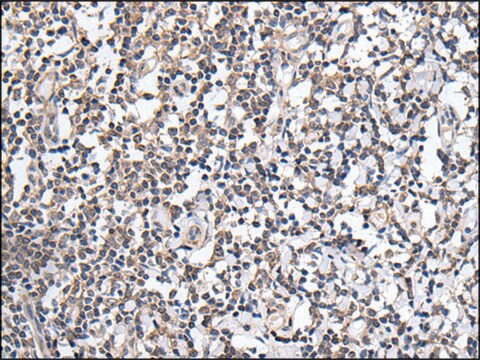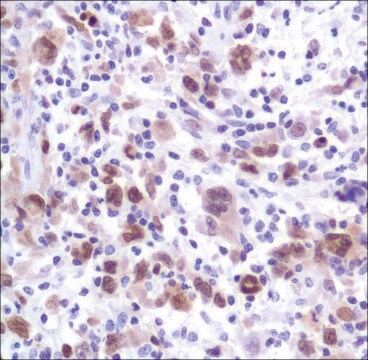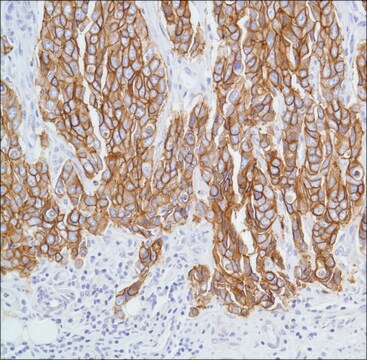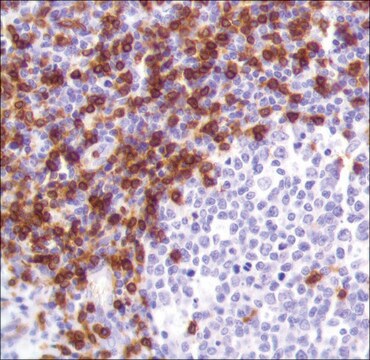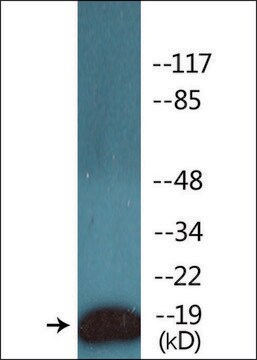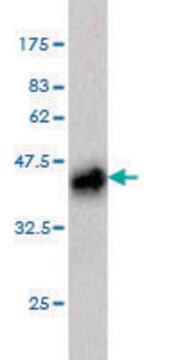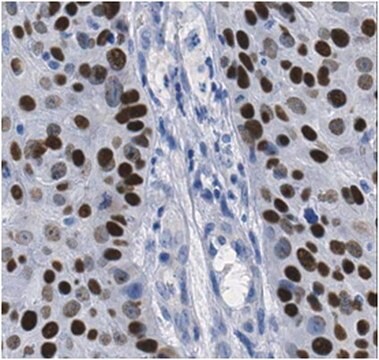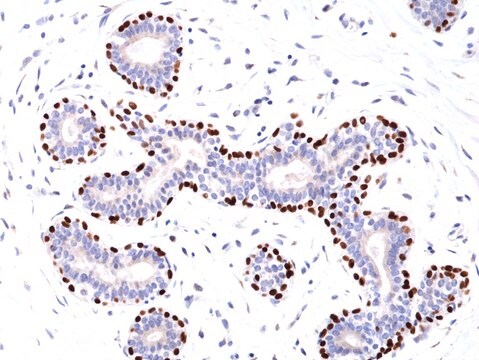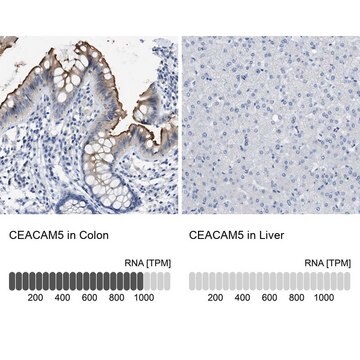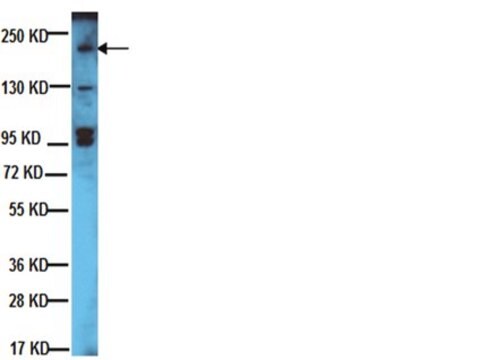482R-1
p63 (EP174) Rabbit Monoclonal Primary Antibody
About This Item
Prodotti consigliati
Origine biologica
rabbit
Livello qualitativo
100
500
Coniugato
unconjugated
Forma dell’anticorpo
culture supernatant
Tipo di anticorpo
primary antibodies
Clone
EP174
Descrizione
For In Vitro Diagnostic Use in Select Regions
Forma fisica
buffered aqueous solution
Reattività contro le specie
human
Confezionamento
vial of 0.1 mL concentrate (482R-14)
vial of 0.1 mL concentrate, Research Use Only (482R-14-RUO)
vial of 0.5 mL concentrate (482R-15)
vial of 1.0 mL concentrate (482R-16)
vial of 1.0 mL concentrate, Research Use Only (482R-16-RUO)
vial of 1.0 mL pre-dilute ready-to-use, Research Use Only (482R-17-RUO)
vial of 1.0 mL pre-dilute, ready to use (482R-17)
vial of 25.0 mL pre-dilute ready-to-use (482R-10)
vial of 25.0 mL pre-dilute ready-to-use, Research Use Only (482R-10-RUO)
vial of 7.0 mL pre-dilute, ready to use (482R-18)
vial of 7.0 mL pre-dilute, ready to use, Research Use Only (482R-18-RUO)
Produttore/marchio commerciale
Cell Marque
tecniche
immunohistochemistry (formalin-fixed, paraffin-embedded sections): suitable (1:100-1:200 (concentrated))
Isotipo
IgG
Controllo
lung (squamous cell carcinoma), prostate
Condizioni di spedizione
wet ice
Temperatura di conservazione
2-8°C
Visualizzazione
nuclear
Descrizione generale
Qualità
Canada - RUO
European Union - IVD
Japan - RUO
Stato fisico
Nota sulla preparazione
Note: This requires a keycode which can be found on your packaging or product label.
Altre note
Non trovi il prodotto giusto?
Prova il nostro Motore di ricerca dei prodotti.
Codice della classe di stoccaggio
12 - Non Combustible Liquids
Classe di pericolosità dell'acqua (WGK)
WGK 2
Certificati d'analisi (COA)
Cerca il Certificati d'analisi (COA) digitando il numero di lotto/batch corrispondente. I numeri di lotto o di batch sono stampati sull'etichetta dei prodotti dopo la parola ‘Lotto’ o ‘Batch’.
Possiedi già questo prodotto?
I documenti relativi ai prodotti acquistati recentemente sono disponibili nell’Archivio dei documenti.
Il team dei nostri ricercatori vanta grande esperienza in tutte le aree della ricerca quali Life Science, scienza dei materiali, sintesi chimica, cromatografia, discipline analitiche, ecc..
Contatta l'Assistenza Tecnica.